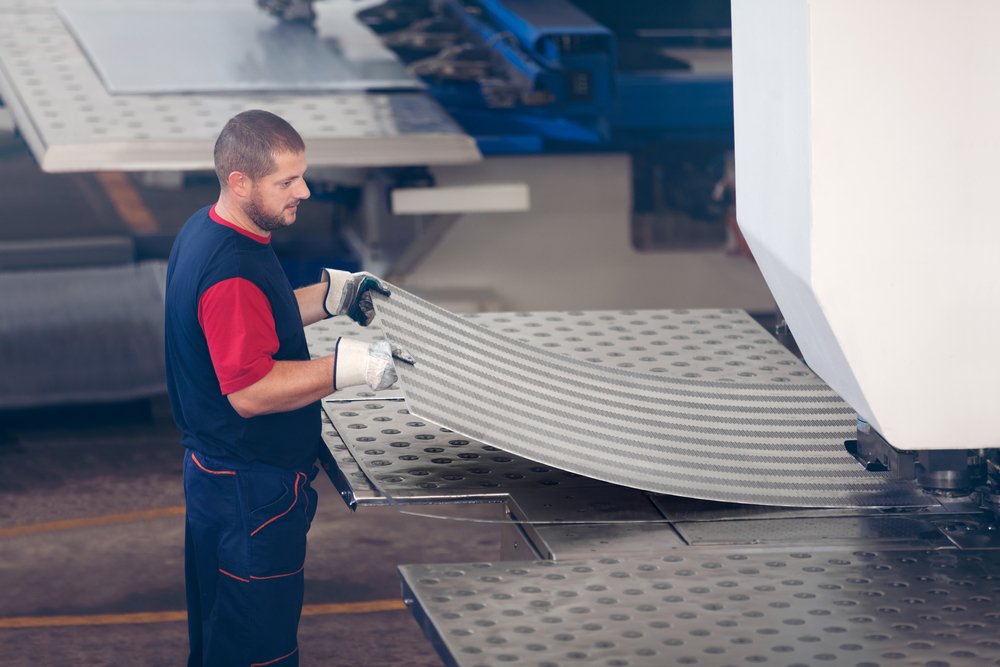Lean Metal Fabrication during Harsh Economic Times
Being able to manage large and small crises better is the purpose of lean metal fabrication manufacturing. Crises are always knocking on the door, and there are those big ones that you become a victim of, then there are the small ones that you can ignore.
However, many companies react by looking for areas to cut costs when faced with any kind of crisis. This isn’t the case with industrials, though. Manufacturers are starting to approach things a bit more agilely by turning to ‘lean’ roots to steady their operations and keep things moving forward with their metal fabrication. ProfusionUSA is one such company that hasn’t sacrificed quality and has continued to operate well in these current times.
Implementing lean strategies has helped countless manufacturers shorten lead times, increase cash flow, and lower PPM.
And in any case, the lean approach seeks to answer one question- where’s the bottleneck?
How the Lean Approach can Help in Metal Fabrication
Lean manufacturing in metal fabrication seeks to eliminate waste on all production phases. The idea is to make production more cost-effective while satisfying customers. As IndustryWeek advises, the worst thing you can do as a steel manufacturer during a crisis is to panic or react without a plan.
Instead, evaluate all current operational structures and their viability, especially in crises like this global pandemic. As you know, cutting costs in metal fabrication is almost impractical because the equipment used is usually too bulky to get rearranged in a way that can reduce machine and human movements.
Also, the cycle time of production will always be longer in metal manufacturing than in other businesses because of the product-sizes created. Not to mention that metallurgical constraints curtail the aggressive acceleration of cool-down and heat-up cycles.
This is where lean metal fabrication comes in. It helps metal fabricators realize significant reductions in production costs, cycle times, changeover times, and inventory. Lean manufacturing also helps to achieve substantial improvements in delivery, reliability, and quality.
And as you may know, this style of manufacturing is applicable in:
- CRM
- Hot Dip Galvanising
- Al Zn Coating
- Color Coating
- Steel Corrugation
- Flat Products
- Tube Mills
The Seven Deadly Wastes Lean Manufacturing Eliminates in Metal Fabrication
Manufacturing efficiency experts Vorne Industries Inc. note that understanding the following wastes can help metal fabricators formulate a strategy for reducing inefficiencies in material handling, labor, and other resources:
- Overproduction- Are you processing more than what the customer requires? Are there better ways to meet your customer requirements with your manufacturing processes?
- Waiting- Is there a period where staff remain inactive while waiting for the next task in your production process? Is there a way to a more continuous production flow to give more value to your customers?
- Transport- Are you unnecessarily moving finished goods, work-in-progress (WIP), and raw materials? What can you do to realize a linear flow of production?
- Motion- How can you reorganize your workflow to reduce unnecessary staff movement? Can you rearrange your equipment to limit motion waste?
- Over-processing – What are your manufacturing specifications as compared to your customer requirements? Are there any manufacturing simplifications you can adopt to process only what your customers need?
- Defects- What is the most prevalent defect, and why does it keep occurring? Can you adopt a strategy to detect and curb future abnormalities?
- Inventory- Is every raw material coming into your company truly needed? Is there a way to counter overproduction?
Go Lean with Better Planning
The lean approach boils down to getting rid of processes/ activities that don’t add to customer value. The end result is eliminating costly inefficiencies, improving productivity, and preventing unnecessary delays. The lean approach also helps with project inefficiency and streamlining of the purchasing process for customers.
